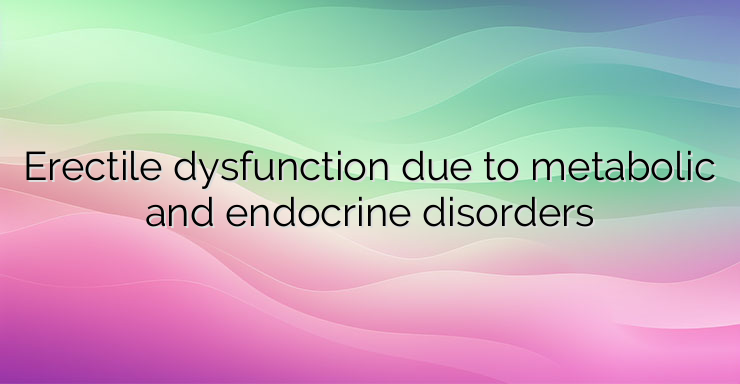Erectile dysfunction (ED) with endocrine genesis is a less common but significant subtype, accounting for up to 5% of all ED cases. It’s crucial to differentiate this type from psychogenic and organic causes, as well as those arising from a loss of vitality due to prolonged somatic illness. In this article, we’ll explore the various categories of ED with endocrine genesis, including hypogonadism, hyperestrogenism, hyperprolactinemia, and common endocrinopathies such as acromegaly, hypothyroidism, hyperthyroidism, hypocorticism, and hypercorticism.
Erectile Dysfunction in Hypogonadism
Hypogonadism refers to conditions characterized by decreased secretion of testosterone, a hormone essential for male sexual behavior. Testosterone deficiency can lead to reduced libido, weakened automatic erections, delayed ejaculation, and decreased ejaculate volume. The effect of testosterone on sexuality is directly related to its level in the bloodstream, typically ranging between 2 and 4.5 ng/ml. Aging is associated with a progressive decline in testosterone levels, potentially leading to sexual dysfunction.
Erectile Dysfunction in Diabetes
Diabetes is a common comorbidity with ED, affecting 30 to 60% of diabetic individuals. Neurological factors play a significant role in diabetic ED, with early involvement of demyelinated nerve fibers leading to autonomic neuropathy. This neuropathy can cause circulatory, digestive, and genitourinary disorders, including retrograde ejaculation due to relaxation of the internal sphincter. Vascular and endocrine factors, along with psychological aspects, contribute to the complexity of ED in diabetics.
Erectile Dysfunction and Alcoholism
While alcohol can initially stimulate libido, chronic alcohol abuse often results in sexual dysfunction, even after cessation of alcohol intake. Ethylic polyneuritis, affecting peripheral nerves, is a common consequence of alcoholism, leading to autonomic nervous system damage. Additionally, alcohol can cause damage at various levels of the nervous system, further complicating the picture. Psychosocial factors associated with alcoholism also contribute to ED in affected individuals.
In conclusion, erectile dysfunction with endocrine genesis encompasses various hormonal, neurological, vascular, and psychological factors. Understanding the interplay of these factors is crucial for effective management and treatment. Patients with ED should undergo comprehensive evaluation to identify underlying endocrine disorders and comorbidities, allowing for tailored therapeutic interventions. Early detection and management can significantly improve outcomes and overall quality of life for individuals affected by this condition.


Leave a Reply